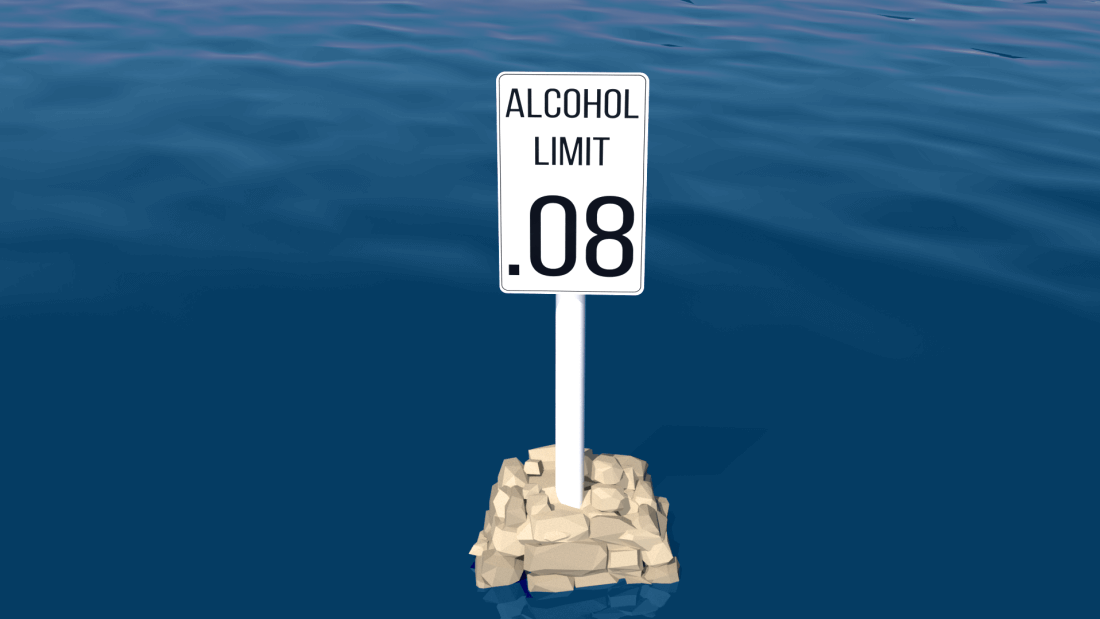Consumption of Alcohol & Drugs while Boating in USA
Most boating accidents involve the use of alcohol and one-third of all boating fatalities are alcohol related. According to the U.S. Coast Guard, alcohol was the leading known contributing factor in fatal boating accidents and was listed as the leading factor in 15 percent of deaths. It is illegal to operate a boat, or to permit others to do so, while under the influence of alcohol, narcotics, or barbiturates. Penalties are severe and could include fines, imprisonment, non-paid public service work, and mandatory substance abuse counseling.

What can happen if I use alcohol or drugs while boating?
Alcohol is a stressor and can decrease a person’s ability to handle a boat in many ways. As a depressant, alcohol goes straight to the nerves, blood stream, and the brain. As recreational boaters it is hard enough to remember all the rules, regulations, boat handling techniques, etc. while lucid.
A few beers to quench the thirst in a rapidly dehydrating body and the following happens:
- Eroding sense of balance:
Most boating deaths result from falling out of a small open boat, without a PFD, whether it capsizes or not. - Vision fades:
Because of the sun and reflection of light, objects on the water can be hazy and difficult to see. Color perception and peripheral vision deteriorate and at night depth perception decreases. You can imagine what happens if you can’t distinguish between the red and green markers or red and green lights of an oncoming vessel at night. - Physical reactions become slower:
Should a person fall into the water they may have trouble just floating, let alone grasping onto a life ring or throwable device. Add the shock of the cold water and the risk of cramping and drowning is increased significantly. - Surface blood vessels dilate:
Blood vessels on the surface of the skin dilate to increase the rate of body heat loss while in the sun. If, while these vessels are dilated, you fall overboard into cold water hypothermia sets in quickly and this further reduces your decision-making abilities. - Judgment and reasoning ability is impaired:
One of the things that drinking tends to do is to make you begin to lose your judgment. After a drink or two people tend to become relaxed and are more likely to perform dangerous acts that they might not normally do if not under the influence. Because their judgment is impaired they may not even realize they are doing something dangerous. This, combined with the other debilitating symptoms previously covered, spells disaster. - Environmental stressors:
Natural stressors such as exposure to sun, glare, wind, noise, vibration, and motion on the water produces fatigue. This in itself reduces reaction time almost as much as being under the influence. Adding alcohol to these environmental stressors intensifies their effects.
